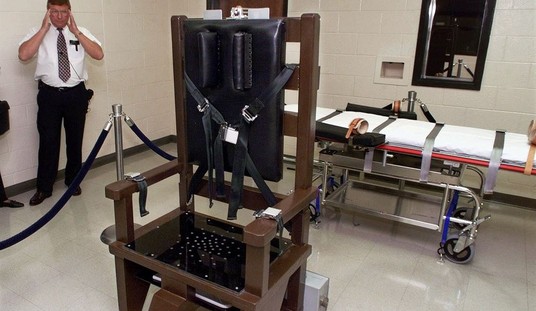There’s been a battle going on in New York for quite a while now between Attorney General Eric Schneiderman and Citizens United (CU) over the state government’s efforts to unmask charitable donors through some backhanded legal maneuvers. As the case makes its way through the courts, CU had sought an injunction against the AG to prevent them from collecting the information until a final ruling was delivered. This week a federal judge in Manhattan seemed to ignore federal law entirely and decided to deny the injunction because, hey… what possible harm could it do? (Yahoo News)
U.S. District Judge Sidney Stein in Manhattan refused to impose a preliminary injunction that would stop Schneiderman from requiring charities to disclose names, addresses and total contributions of big donors in order to solicit funds in the state.
Citizens United argued that Schneiderman’s interpretation of a 2006 state regulation on donor disclosures violated its First Amendment free speech and association rights, and invaded the privacy of donors who wished to remain anonymous.
But the judge said Schneiderman’s policy was substantially related to the important government interests of enforcing charitable solicitation laws, and protecting residents from illegitimate charities.
He also said Citizens United did not make the required “clear showing” that it would ultimately prevail, and fell “decidedly short” in attempting to show it would suffer irreparable harm absent an injunction.
In order to fully understand how bad this is we need to dig into the details of precisely what the AG is doing and the basis for the case against him. It gets a little wonky, but bear with me because this could be repeated in a number of other places if Schneiderman prevails.
In New York (as with most states) the AG is responsible for oversight of the many charities who solicit donations from citizens through the auspices of his Charities Bureau. All charities which receive tax exempt status have to comply with various filing requirements which allow the government to ensure that no fraud or abuse of donors is taking place. Fair enough. You do find some bad apples in the charity game from time to time and donors need to be protected. But the applicable state law spells out quite clearly what the AG’s responsibilities are and why he needs to be collecting certain information. (Keep this part in mind later.)
The Charities Bureau oversees the registration of charitable organizations, investigates donor and consumer complaints, ensures that funds and property held for charitable purposes are properly used, and prosecutes violations of New York’s charitable registration and solicitation laws.
As part of this oversight process, charities have to file a registration form with the AG office initially and update it every year. So far so good. Now, in addition to (and completely separate from) this oversight process, charities must also file Form 990 with the IRS each year along with several attached schedules. One of them is Schedule B, where they must list all donors who give more than $5,000 to the charity. We can argue some other time over how “safe” that information is in the trustworthy hands of the IRS, but by federal law the tax man can’t release that Schedule B information to the public… or the Attorney General absent a warrant.
In 2006 Schneiderman issued a rules change which directed all charities, as part of their annual reporting, to include a copy of the complete IRS Form 990, 990-EZ or 990-PF with schedules. That little noted bureaucratic change opened up a whole new can of worms, because now the charities, including Citizens United and lots of other primarily political entities, would basically be turning over a list of their donors to the AG’s office every year. And this is information which the IRS is specifically barred from distributing.
Pretty clever, eh?
You can read the full case summary here. It’s a rather dry bit of summer reading, but it’s an important case. For the time being, the judge will apparently ignore the law. His argument that this data is part of “the important government interests of enforcing charitable solicitation laws, and protecting residents” makes less sense then his argument that there is no evidence that failing to deliver the injunction would result in permanent harm. He’s supposed to be investigating the charities to make sure they aren’t ripping off the donors, not compiling a list of people giving them money. But absent a victory further up the food chain, the extremely politicized office of the New York Attorney General will be happily browsing the supposedly private lists of charitable donors until the case is finally resolved.








Join the conversation as a VIP Member